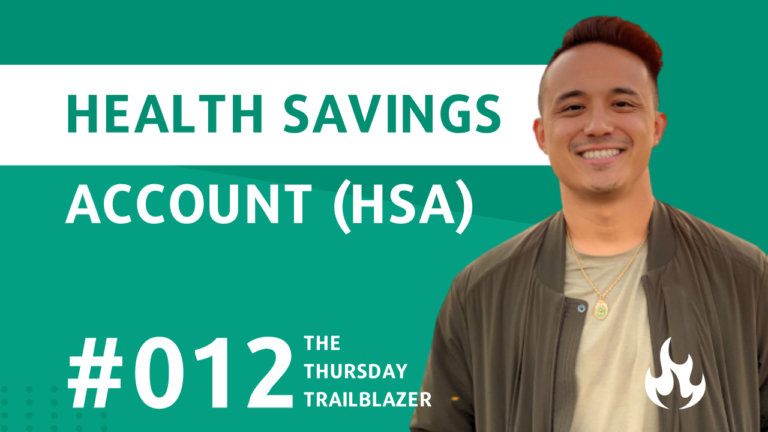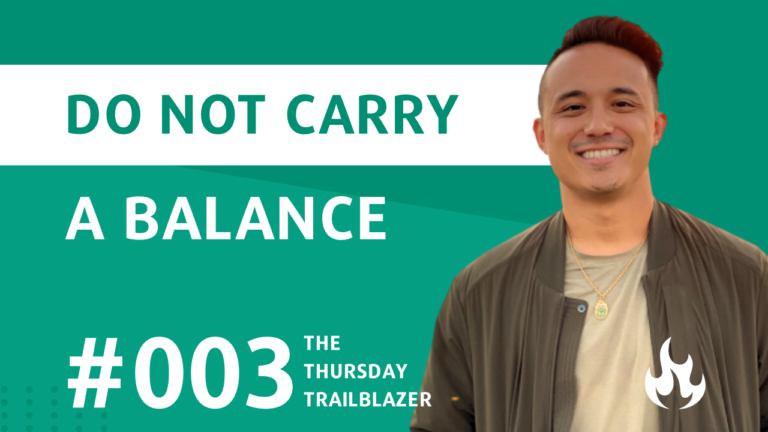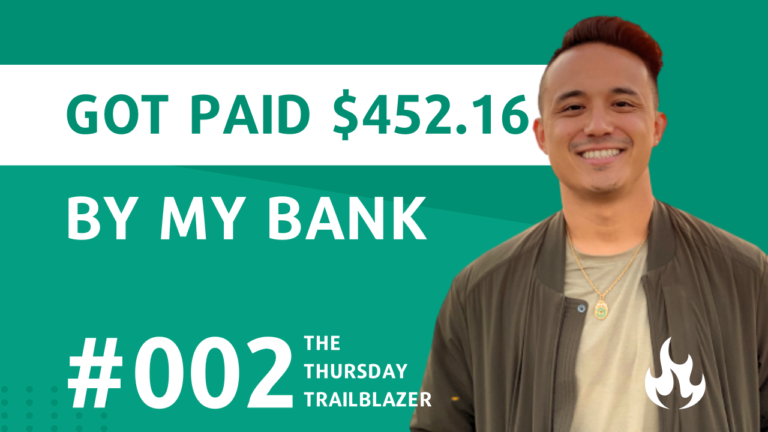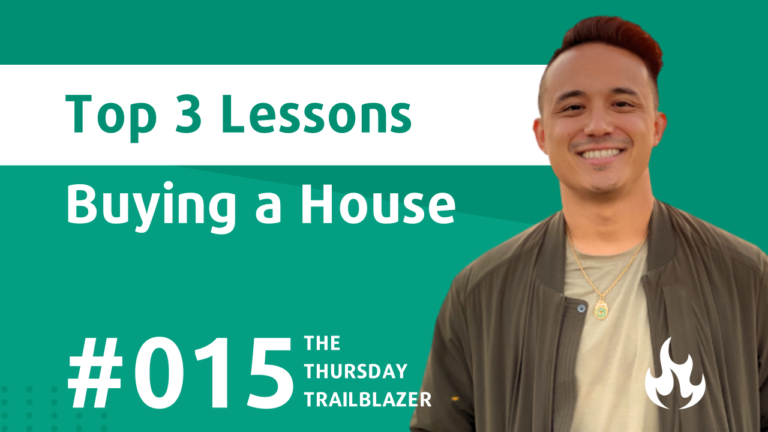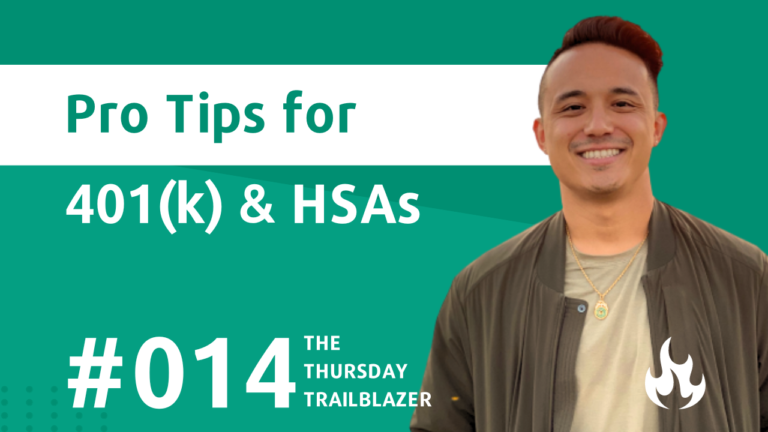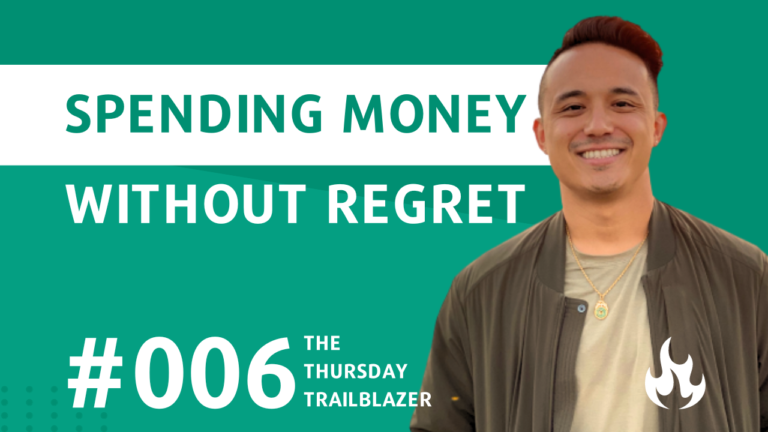T3 #016: The ultimate 5-step guide how to get job interviews and job offers after being laid off
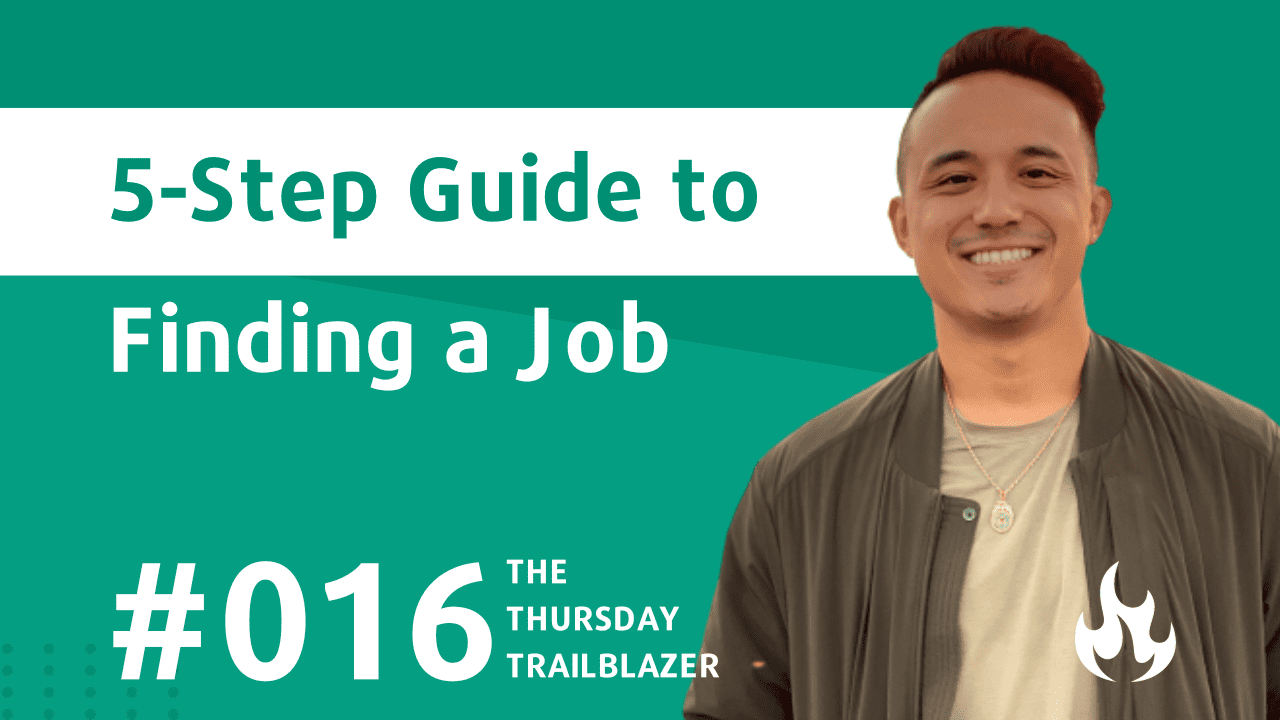
Insights from over 37 professionals as well as my personal experiences of quickly recovering from the two layoffs in my career.
This is a special series of the Thursday Trailblazer newsletter – the first in a series of posts sharing insights, tips, and actions that you can implement when you are searching for a job either to leave your current one, or due to a recent layoff. The principles in the following series can be largely applied to both situations and adapted to your specific scenario. Best of luck in your journey!
Over the past decade I have navigated a career amongst large corporations like Deloitte exceeding over 415,000 professionals globally to small venture-backed startups like Clubhouse with only 19 team members. After transitioning between 5 different employers and navigating two layoffs, I am often approached for any tips or guidance that I could share with how I landed my next role. There are so many factors across industries and professional focus, that I felt that it would be the most helpful to lean into my own professional network to develop a playbook that you could adapt to your own situation.
As I write this, I can still remember the loneliness I felt after my first layoff. I was only a few years out of college, and failed to realize how closely tied my identity was to my profession. I felt worthless.
Stripped from the crutch of my career, I felt like I had no sense of direction. Each step I took forward was followed with a faint “Are you sure?” echoing in my head.
Years later I found myself taken back to a similar place after experiencing a second layoff. As I searched for what to do next, I realized I was still unable to find a comprehensive guide that I could lean on to provide the confidence that assured me that I was taking the right steps. Over the past few months, I have had conversations with friends, family, and others in my professional network to identify the key steps that should give you the best shot to jumpstart your search in applying and getting multiple job offers. Hopefully you find this guide helpful regardless if you’re just starting your career or someone that is a seasoned professional looking for your next Director role.
The ultimate 5-step guide to getting interviews and job offers after being laid off
Phase 1: Whether you think you can, or you think you can’t, you’re right – getting into the right headspace 🧠
- Part 1: You are more valuable than you think 🤓 (this post)
- Part 2: It’s a marathon, not a sprint 👟
- Part 3: Develop a routine 🗓️
Phase 2: How you do anything is how you do everything – unlocking how practice makes perfect 📈
- Part 1: Revise your resume to be in the top 10% 📝
- Part 2: Position your LinkedIn to be more than a digital resume 🦅
- Part 3: Consolidate your past achievements 🏅
Phase 3: How to turn practice skills into game-time execution – gamify the process 😏
- Part 1: 10x your efforts by growing your team 🤝
- Part 2: Your network is your net worth. 💬
- Part 3: Focus on the inputs and the outputs will follow ⚙️
- Part 4: Not all job applications are the created equal 🪜
Phase 4: Acing the Interview 💯
- Part 1: Preparation is half the interview 🧘🏽
- Part 2: Communicating your value during an interview 🌟
- Part 3: Separating yourself from the pack – the art of the follow-up 🖼️
Phase 5: Reviewing the tape – keeping momentum to avoid the layoff scramble in the future 🎥
- Part 1: Always be looking 👀
- Part 2: Keeping sharp and following the market ✏️
- Part 3: No one wants what everyone can have 🍎
- Part 4: How to weather an upcoming storm with a Rainy Day fund 💰
Does this guide work for me if I’m just starting my career?
Many of the concepts and tactics in this guide can apply to you if you are just starting your career. Having a focused mindset and a process that you can follow can help you search, apply, and acquire a job offer that’ll help you further your career.
Important disclaimers
- There is no one right answer. After interviewing multiple professionals, there were always one or two unconventional tactics that helped them get to where they are today. That underlying creativity and willingness to take a chance is what separated them from the rest.
- The world is always changing. LinkedIn was founded in 2002, but most can debate that it has only become truly relevant in the past 5 years. Continue to test different approaches to discover what you find works best. That is truly how you’ll stay ahead of the competition.
- In the best case scenario, you’ll never need this. I know multiple people who’ve been with their employer 20+ years and have an amazing work-life balance. Even for people in that situation, I hope they have prepared a contingency plan just in case. The market and by extension companies can turn for the worst quickly, especially once you get too comfortable.
Phase 1: Whether you think you can, or you think you can’t, you’re right – getting into the right headspace 🧠
Part 1: You are more valuable than you think 🤓
The day after being laid off is usually the hardest.
The initial shock of being laid off has started to wear off and your mind begins to wonder, “Why me?”
Was it something that I did?
Or something that I didn’t do?
Was I not good enough to stay?
Looking at the mirror and the first person to blame is yourself.
All of that negative mumbo jumbo is not true.
In almost every case, being laid-off is because the company over-hired or mismanaged their business.
Remember: you were initially hired because you are good!
Don’t let some Excel calculation that told management to lay you off cause you to doubt your ability.
But if I was so good, why me?
How are layoffs decided?
Even if it had nothing to do with your skill…
…it still happened.
And because of that, I ask why?
There are only a few ways that I found companies make their decisions around who should and who should go.
Sometimes it’s obvious. You may be able to spot a trend based on who was let go or is explicitly stated in company messaging. Here are a few common ways companies determine who to lay off…
…and you’ll notice a layoff is rarely due to the value you bring:
Team-specific
Every department and team within a company serves a different purpose. Some generate revenue, like Sales or Business Development, while others are may be more operationally-focused. When a company undergoes hard times, specific departments may be identified as areas to reduce expenses with the least amount of impact to the company’s overall operations. This is decided at a department or team-level, not at an individual (you) level.
Me or You
This one is a little more primitive than mathematics. If a manager is tasked with reducing their team, they need to determine who to let go – either themselves or you. Especially if there are overlapping responsibilities of work they can do themselves. At the end of the day, self-preservation is going to be a contributing factor in a layoff situation.
Compensation
The compensation of team members is rarely equal across the board. There are junior team members mixed with senior team members. At first glance, you might think seniority rules over those that are less junior, but that also means they are more expensive. In some cases one person’s compensation can allow a company to keep two junior team members for the same amount. Especially if those team members can provide significant impact, this may be the decision the company decides to make.
Performance
Just because in most cases a layoff isn’t due to performance, doesn’t mean that it isn’t. Sometimes looking through the staff on various teams, especially those on a performance improvement plan (PIP), that aren’t meeting expectations can be let go. From a company perspective, they can reduce their risk to workforce performance and expenses at the same time.
Randomly
Sometimes after a large layoff there are no trends that help individuals identify how the layoffs were determined. One of the most recent occurrences of this type of layoff was Google in January of 2023, when 12,000+ people amongst their senior to junior ranks were asked to leave. This post summarizes the feeling well:
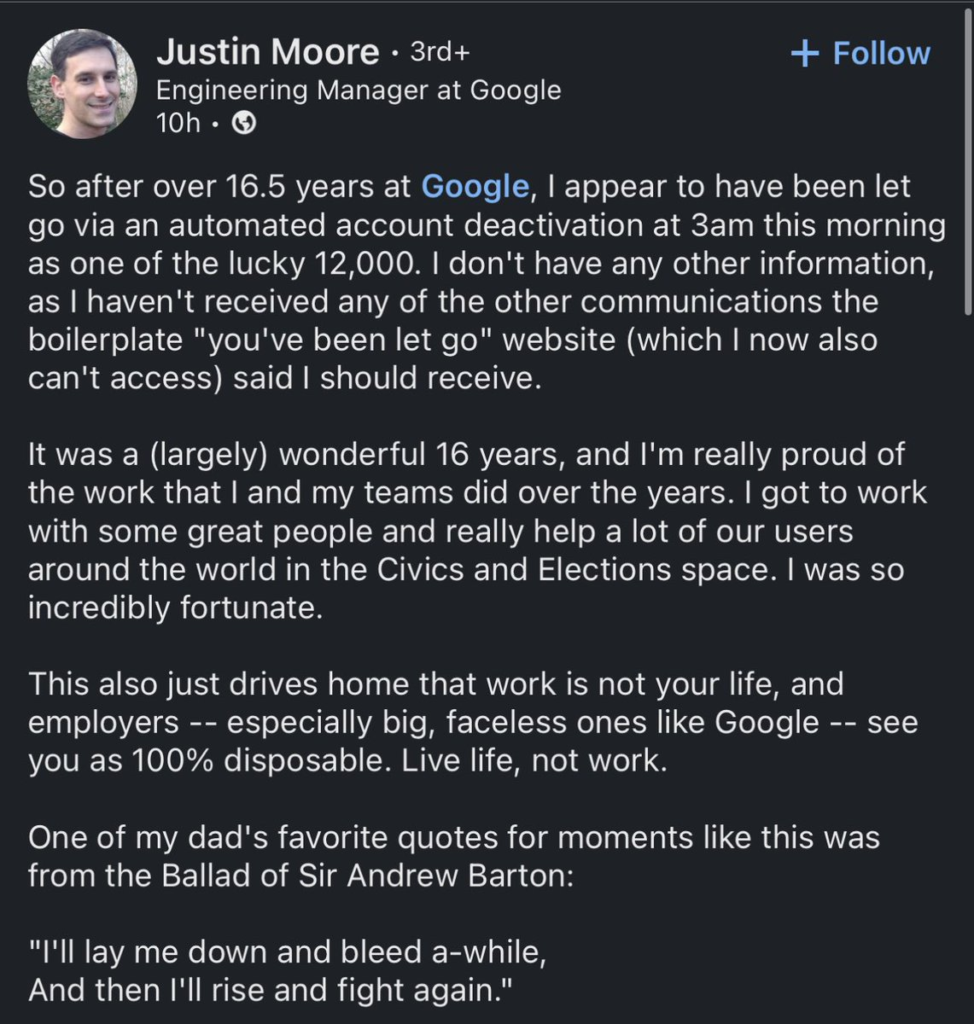
If it isn’t my ability, why does it hurt so badly?
As one of the first to finish college in my family, graduating college and getting a good job felt like the pinnacle of what I was supposed to do. Not only to have a great life but to also make my family proud.
Being laid off is more than just a paycheck…
…it was part of my identity.
Beyond that, I had dedicated the majority of my waking hours building a routine around my job and my coworkers that turned into really good friends. I became invested not only in the people around me, but the mission of what we [the company] were trying to do.
To then receive a random call from my manager…
…or simply an email that says “we are letting you go” is gut-wrenching.
If you are feeling disoriented, confused, or lost…
…it’s okay.
What you expected to be your daily routine has just been turned upside down.
That discomfort you feel isn’t pain, it’s change.
Call someone that you can openly speak to about it.
This can be a close friend, family member, or therapist.
There is comfort in talking through these sort of things with others.
I myself reached out to old colleagues as I found support and clarity after speaking with them.
For those that I had reached out to in the past, thank you. 🙏
💡 Action Steps
🥾 Reconnect with YOU. There are probably a hundred things running through your head on what to do next. Spend the next 48 hours and do something that you enjoy.
- It’s okay to take some time to acknowledge what just happened, take your foot off the gas, and reconnect with yourself. For me – it was hiking for the first time in over 8 months.
📔 Journal Entry: Spend 10 minutes to journal about what’s going on in your mind. I used the following prompts in my entry:
- What was I most grateful for during my past experience
- What is something that I compromised in the past that I don’t want to compromise in the future
- What am I most excited for in the future
In next week’s article, I’ll cover Part 2: It’s a marathon, not a sprint 👟 where we’ll cover the tactics that I used to prevent application burnout over the 5+ months I was searching, applying, and interviewing for my next role.
📚 Other Notable Resources
- Last Week’s Post: Three lessons I learned buying my first real estate investment.
- Next Week’s Post: First 3 Things To Do Before Looking for a Job
- Tools: Teal Job Application Tracker
- Free Resource: Personal Budgeting Template (works for couples too!)
Note: I only promote brands and products I know and trust – and as a Teal affiliate, I may earn a commission (at no cost to you) if you sign up with my link.
Learn the tactics we should have learned in school without the trail-and-error.
Join me and 67+ subscribers to The Thursday Trailblazer. Every Thursday morning, you’ll receive 1 step-by-step insight to help you level up in the areas of personal finance or career development.

